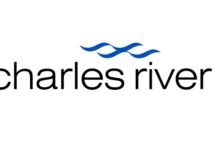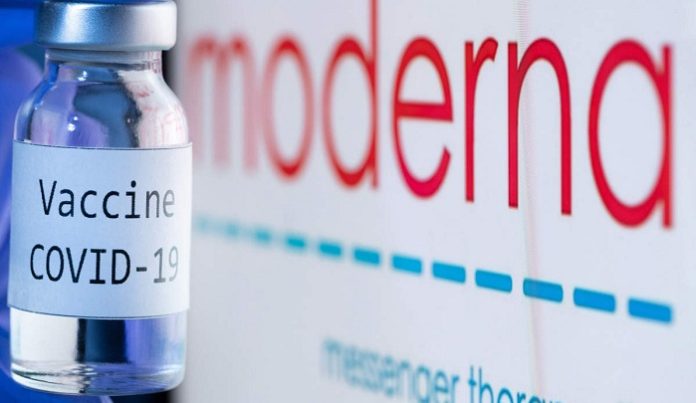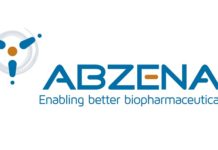Moderna, Inc., a biotechnology company pioneering messenger RNA (mRNA) therapeutics and vaccines announced that the U.S. FDA has authorized the emergency use of mRNA-1273, Moderna’s vaccine against COVID-19 in individuals 18 years of age or older. The Moderna COVID-19 Vaccine is now authorized for distribution and use under an Emergency Use Authorization (EUA). Delivery to the U.S. Government will begin immediately. Moderna will continue to gather additional data and plans to file a Biologics License Application (BLA) with the FDA requesting full licensure in 2021.
“I want to thank the thousands of participants in our clinical trials and the staff at our clinical trial sites who have been on the front lines of the fight against the virus. I want to thank the NIH and NIAID for their scientific leadership and our partners at BARDA and Operation Warp Speed who have been instrumental to accelerating our progress to this point. I also want to thank the Moderna team, our suppliers and our partners for their tireless work across research, development and manufacturing of our vaccine,” said Stéphane Bancel, Chief Executive Officer of Moderna. “I am proud of what the Moderna team has achieved in collaboration with our partners. We were able to create and manufacture the Moderna COVID-19 Vaccine in 11 months from sequence to authorization, while advancing clinical development with a Phase 1, Phase 2 and pivotal Phase 3 study of 30,000 participants. It has been a 10-year scientific, entrepreneurial and medical journey and I am thankful to all those who have helped us get here today. We remain focused on scaling up manufacturing to help us protect as many people as we can from this terrible disease.”
Under Operation Warp Speed, the Department of Defense (DoD), in partnership with the Department of Health and Human Services (HHS) and the U.S. Centers for Disease Control and Prevention (CDC), will manage allocation and distribution of the vaccine in the United States. Allocation and distribution will be prioritized according to populations identified by the CDC’s Advisory Committee on Immunization Practices (ACIP). Approximately 20 million doses will be delivered to the U.S. government by the end of December 2020. The Company expects to have between 100 million and 125 million doses available globally in the first quarter of 2021, with 85-100 million of those available in the U.S.
Moderna would also like to underscore the importance of the CARES Act — and thank its bipartisan Congressional champions — specifically with respect to its significant commitment in funding to enable BARDA and Operation Warp Speed to simultaneously fund development and manufacturing ahead of approval.
The FDA based its recommendation on the totality of scientific evidence shared by the Company, including a data analysis from the pivotal Phase 3 clinical study announced on November 30. The primary efficacy analysis conducted on 196 cases indicated a vaccine efficacy rate of 94.1%.
The most common solicited adverse reactions (ARs) after the two-dose series included injection site pain (88.2%), erythema (8.6%), swelling (12.2%), and ipsilateral lymphadenopathy (14.2%). While the majority of these ARs were grade 1 (mild) or grade 2 (moderate), there was a higher occurrence of grade 3 (severe) reactions after the second injection. The majority of local solicited ARs occurred within the first one to two days after injection and generally persisted for a median of one to two days. Safety data continue to accrue, and the study continues to be monitored by an independent Data Safety Monitoring Board (DSMB) appointed by the National Institutes of Health (NIH). All participants in the COVE study will continued to be monitored for two years for the duration of the study to assess long-term protection and safety.
About the Phase 3 COVE Study
The Phase 3 COVE trial is a randomized, 1:1 placebo-controlled study testing the Moderna COVID-19 Vaccine at the 100 µg dose level in 30,000 participants in the U.S., ages 18 and older. The primary endpoint is the prevention of symptomatic COVID-19 disease. Key secondary endpoints include prevention of severe COVID-19 disease and prevention of infection by SARS-CoV-2. The trial will continue to accrue additional data relevant to safety and efficacy. The final estimates of vaccine efficacy for both primary and secondary endpoints will depend on the totality of data that will accumulate to inform the final analysis. Moderna worked closely with BARDA and the NIH, including NIAID’s COVID-19 Prevention Network (CoVPN), to conduct the Phase 3 COVE study under Operation Warp Speed. Moderna’s partner PPD (Nasdaq: PPD), a leading global contract research organization providing comprehensive, integrated drug development, laboratory and lifecycle management services, has also been essential to the successful execution of the COVE study.
The Phase 3 COVE study was designed in collaboration with the FDA and NIH to evaluate Americans at risk of severe COVID-19 disease and completed enrollment of 30,000 participants ages 18 and older in the U.S. on October 22, including those at high risk of the severe complications of COVID-19 disease. The COVE study includes more than 7,000 Americans over the age of 65. It also includes more than 5,000 Americans who are under the age of 65 but have high-risk chronic diseases that put them at increased risk of severe COVID-19, such as diabetes, severe obesity and cardiac disease. These medically high-risk groups represent 42% of the total participants in the Phase 3 COVE study. The study also included communities that have historically been under-represented in clinical research and have been disproportionately impacted by COVID-19. The study includes more than 11,000 participants from communities of color, representing 37% of the study population, which is similar to the diversity of the U.S. at large. This includes more than 6,000 participants who identify as Hispanic or LatinX, and more than 3,000 participants who identify as Black or African American.
About the Moderna COVID-19 Vaccine
The Moderna COVID-19 Vaccine (previously referred to as mRNA-1273) is an mRNA vaccine against COVID-19 encoding for a prefusion stabilized form of the Spike (S) protein, which was co-developed by Moderna and investigators from NIAID’s Vaccine Research Center. The first clinical batch, which was funded by the Coalition for Epidemic Preparedness Innovations, was completed on February 7, 2020 and underwent analytical testing; it was shipped to the NIH on February 24, 42 days from sequence selection. The first participant in the NIAID-led Phase 1 study of the vaccine was dosed on March 16, 63 days from sequence selection to Phase 1 study dosing. On May 12, the FDA granted the Moderna COVID-19 Vaccine Fast Track designation. On May 29, the first participants in each age cohort: adults ages 18-55 years (n=300) and older adults ages 55 years and above (n=300) were dosed in the Phase 2 study of mRNA-1273. On July 8, the Phase 2 study completed enrollment.
Results from the second interim analysis of the NIH-led Phase 1 study of the Moderna COVID-19 Vaccine in the 56-70 and 71+ age groups were published on September 29 in The New England Journal of Medicine. On July 28, results from a non-human primate preclinical viral challenge study evaluating the vaccine were published in The New England Journal of Medicine. On July 14, an interim analysis of the original cohorts in the NIH-led Phase 1 study of the vaccine was published in The New England Journal of Medicine. On November 30, Moderna announced the primary efficacy analysis of the Phase 3 study of the vaccine conducted on 196 cases. On November 30, the Company also announced that it filed for Emergency Use Authorization with the U.S. FDA and a Conditional Marketing Authorization (CMA) with the European Medicines Agency. On December 3, a letter to the editor was published in The New England Journal of Medicine reporting that participants in the Phase 1 study of the Moderna COVID-19 Vaccine retained high levels of neutralizing antibodies through 119 days following first vaccination (90 days following second vaccination). On December 18, 2020, the FDA authorized the emergency use of the Moderna COVID-19 Vaccine in individuals 18 years of age or older.
The Biomedical Advanced Research and Development Authority (BARDA), part of the Office of the Assistant Secretary for Preparedness and Response (ASPR) within the U.S. Department of Health and Human Services (HHS) is supporting the continued research and development of the Moderna COVID-19 Vaccine with $955 million in federal funding under contract no. 75A50120C00034. BARDA is reimbursing Moderna for 100 percent of the allowable costs incurred by the Company for conducting the program described in the BARDA contract. The U.S. government has agreed to purchase supply of the Moderna COVID-19 Vaccine under U.S. Department of Defense contract no. W911QY-20-C-0100.
The Moderna COVID-19 vaccine has not been approved or licensed by the FDA, or any other health authority, but it has been authorized for emergency use by the FDA under an EUA.
About Moderna
Moderna is advancing messenger RNA (mRNA) science to create a new class of transformative medicines for patients. mRNA medicines are designed to direct the body’s cells to produce intracellular, membrane or secreted proteins that can have a therapeutic or preventive benefit and have the potential to address a broad spectrum of diseases. The company’s platform builds on continuous advances in basic and applied mRNA science, delivery technology and manufacturing, providing Moderna the capability to pursue in parallel a robust pipeline of new development candidates. Moderna is developing therapeutics and vaccines for infectious diseases, immuno-oncology, rare diseases and cardiovascular diseases, independently and with strategic collaborators.




























